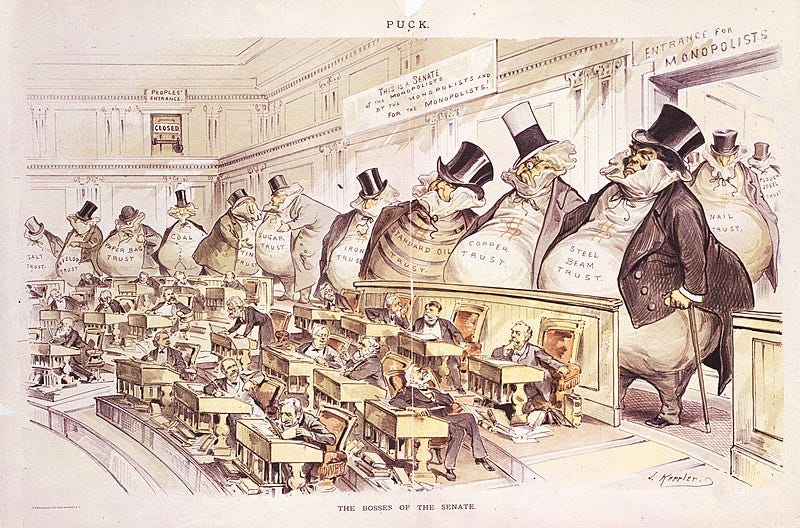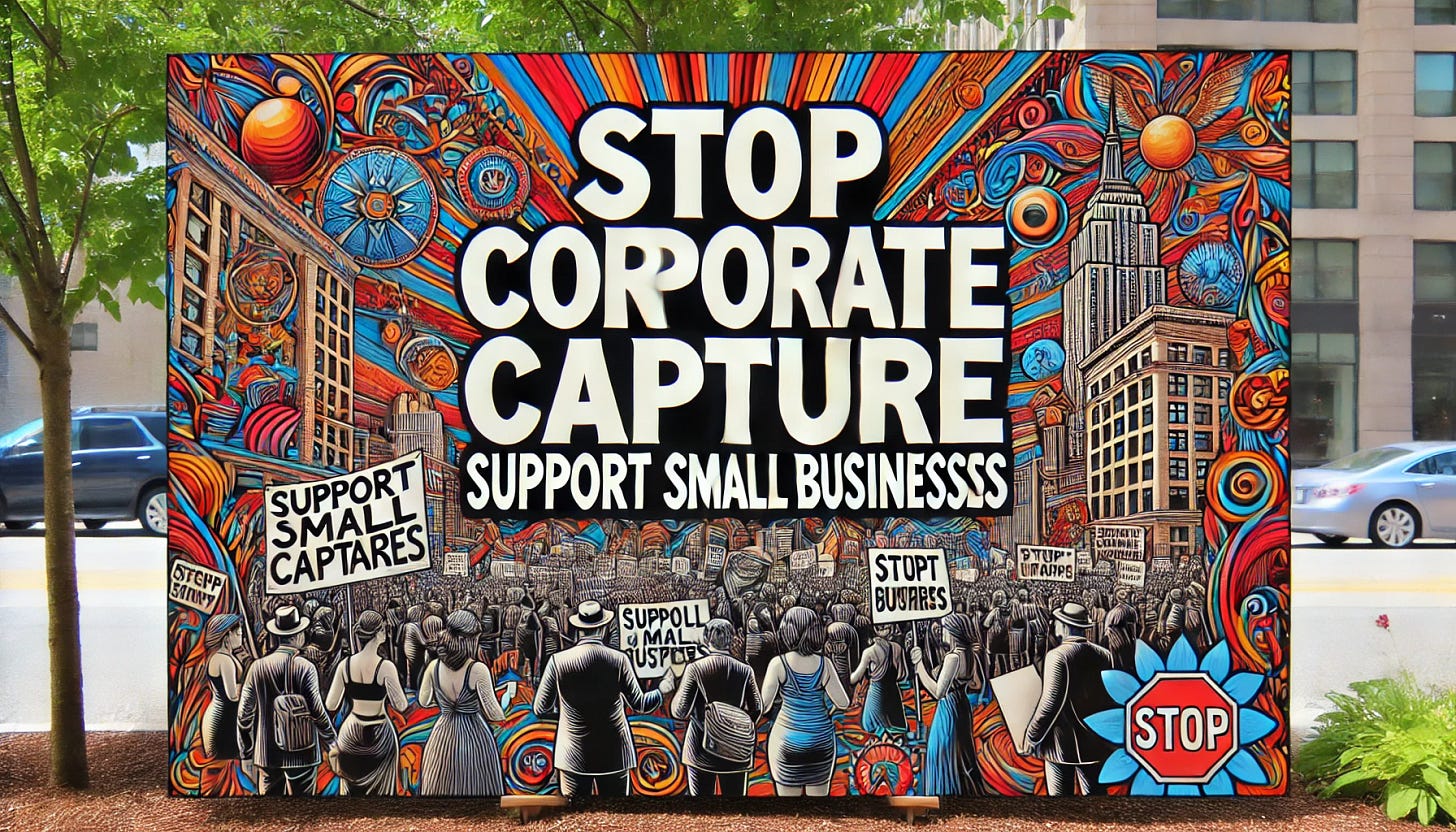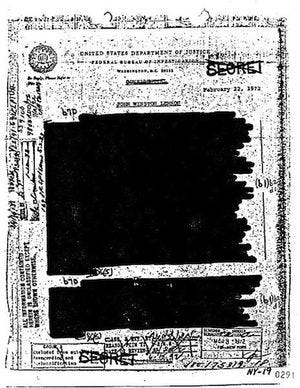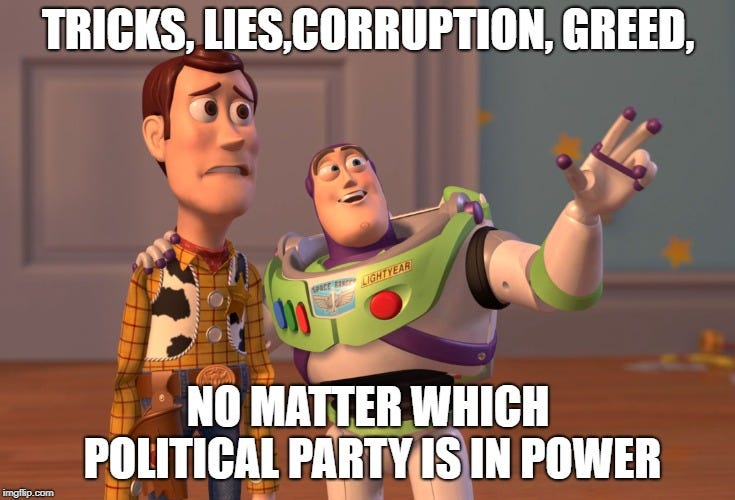"Robert F. Kennedy Jr. and Lloyd Chapman Expose Pentagon Failures and Fight for America’s Small Businesses"
Government Contracts, Small Business Fraud, and Corporate Capture: An Interview with Robert F. Kennedy Jr. and Lloyd Chapman
In a compelling and detailed interview, Robert F. Kennedy Jr. spoke with Lloyd Chapman, a long-time advocate for small businesses, uncovering deep systemic corruption within federal contracting and broader governmental systems. Chapman, who has filed numerous Freedom of Information Act (FOIA) requests and lawsuits against government agencies, painted a dire picture of corporate capture and the marginalization of small businesses in favor of Fortune 500 companies.
The conversation began with Chapman explaining how he inadvertently became a whistleblower after discovering significant discrepancies between the Pentagon's claims to Congress about small business contract allocations and the actual numbers. According to Chapman, while the Pentagon reported meeting the legally mandated 23% allocation for small businesses, internal documents revealed the figure to be significantly lower—sometimes as low as "16 hundredths of 1%." After several FOIA requests and a subsequent lawsuit, Chapman obtained critical reports showing these inconsistencies, prompting a congressional investigation and a substantial increase in funds allocated to small businesses for certain contracts. However, he noted that these gains were quickly undermined by the Pentagon's introduction of the Comprehensive Subcontracting Plan Test Program, which eliminated reporting requirements and penalties for non-compliance.
A Broken System Protecting Big Business
Chapman criticized the Pentagon’s 35-year "testing" of the Comprehensive Subcontracting Plan Test Program, highlighting its apparent purpose: to shield large contractors from accountability. He noted that the program’s two main provisions—eliminating penalties for non-compliance and transparency requirements—effectively allowed Fortune 500 companies to avoid meaningful oversight. “The Pentagon is still testing whether limited transparency… can help small businesses. That’s just insane,” Chapman remarked, calling the program a "successful" venture for large corporations but a disaster for small businesses.
He detailed the broader implications of such systemic failures, arguing that the Small Business Administration (SBA)—an agency intended to support small enterprises—is controlled by interests aligned with the Pentagon and large corporations. Recalling a visit to the SBA’s press office, Chapman described how access to its operations was heavily restricted, suggesting that the agency’s priorities are dictated by the Pentagon rather than small business needs. He even pointed out the background of a former SBA press office director, whose expertise was in "surface weapons warfare systems and reputation management," which he found highly suspicious.
Corporate Capture and the Corruption of Democracy
Chapman tied these issues to a larger trend of corporate capture, asserting that every government agency has been overtaken by Fortune 500 interests. He argued that Washington, D.C., no longer serves the American people but instead operates for the benefit of large corporations. "The United States government has terminal cancer, and the cancer is corporate capture," he declared. This systemic corruption, Chapman suggested, undermines not just small businesses but the entire economy, shifting resources upward to a small elite. He warned of a potential economic collapse due to the government's failure to create jobs or generate tax revenue through small business support.
Kennedy agreed, noting that the Democratic National Committee (DNC) has also been overtaken by corporate lobbyists. He cited reports detailing how the DNC’s leadership is filled with individuals representing major corporations, a situation he described as antithetical to the party’s historic commitment to voting rights and democratic principles. “The DNC is designed to subvert democracy,” Kennedy said, alleging that its goal is to disenfranchise voters and limit competition on the ballot.
FOIA Battles and Government Accountability
Chapman shared the challenges of holding government agencies accountable through lawsuits and FOIA requests. He described receiving heavily redacted documents that obscured critical information, calling it an intentional effort to conceal corruption. For example, a FOIA request seeking the names of small businesses awarded contracts resulted in 50 pages of solid black redactions. He described this lack of transparency as emblematic of a system rigged against accountability. “It’s like suing the mafia,” Chapman said, likening the experience of litigating against the government to facing an organized crime syndicate.
He also highlighted reports from organizations like Public Citizen and Mother Jones that detail the government's manipulation of small business data to create the illusion of compliance with federal mandates. Public Citizen’s report, Slighted, revealed accounting tricks used to inflate the appearance of small business contract allocations, while the Mother Jones article outlined how large corporations reap billions intended for smaller enterprises.
Economic and Political Implications
Both Chapman and Kennedy emphasized the economic impact of this corruption on the middle class and small businesses. Chapman estimated that small businesses are shortchanged by roughly $300 billion annually, with only 3% of federal spending going to small enterprises instead of the mandated 23%. He cited a Senate Small Business Committee study indicating that every 1% increase in small business contracts would create 100,000 new jobs annually. Based on current shortfalls, Chapman argued that restoring compliance with the Small Business Act could generate two million jobs annually without raising taxes or increasing the deficit. “That’s a no-brainer,” he concluded.
Kennedy expressed concerns about the broader implications of this systemic rot, likening it to a "banana republic" where agencies and the judiciary are weaponized to serve corporate and political interests. He cited the Pentagon’s failure to pass an audit in 40 years and reports of trillions of dollars in unaccounted funds as examples of widespread dysfunction. Referring to the 9/11 conspiracy theory about missing Pentagon records, Kennedy noted, “The day before 9/11, Donald Rumsfeld said we couldn’t track 2.3 trillion in acquisitions, and the next day, the part of the Pentagon doing the audit was hit.”
Solutions and a Call to Action
Chapman and Kennedy agreed on the urgency of addressing these issues through increased transparency and compliance with existing laws. Chapman proposed that simply adhering to the 1953 Small Business Act could significantly boost the economy, create jobs, and reduce homelessness. “The solutions are very simple,” he said. Both men called for a return to honesty and integrity in government, with Kennedy pledging to prioritize these reforms if elected. “When I get into the White House, I’m going to call you up on day one, and we’re gonna do all the things you want to do,” Kennedy told Chapman.
This interview sheds light on the pervasive corruption and systemic challenges facing small businesses, offering a detailed critique of governmental inefficiencies and corporate influence. It also provides actionable solutions that could revitalize the middle class and restore trust in public institutions.
Thank You for Reading – Help Us Grow!
Thank you for taking the time to explore this vital conversation. Your engagement is the cornerstone of informed discussions that inspire change. If you found this article enlightening, please consider giving it a like and subscribing to our platform. By doing so, you not only support our mission to shine a light on critical issues but also help us expand our reach and grow our community of changemakers.
Every like, comment, and subscription fuels our ability to deliver more in-depth coverage and thought-provoking insights. Join us in this journey of transparency, advocacy, and action. Hit that like button, subscribe, and share this article with your network. Together, we can make a difference!









